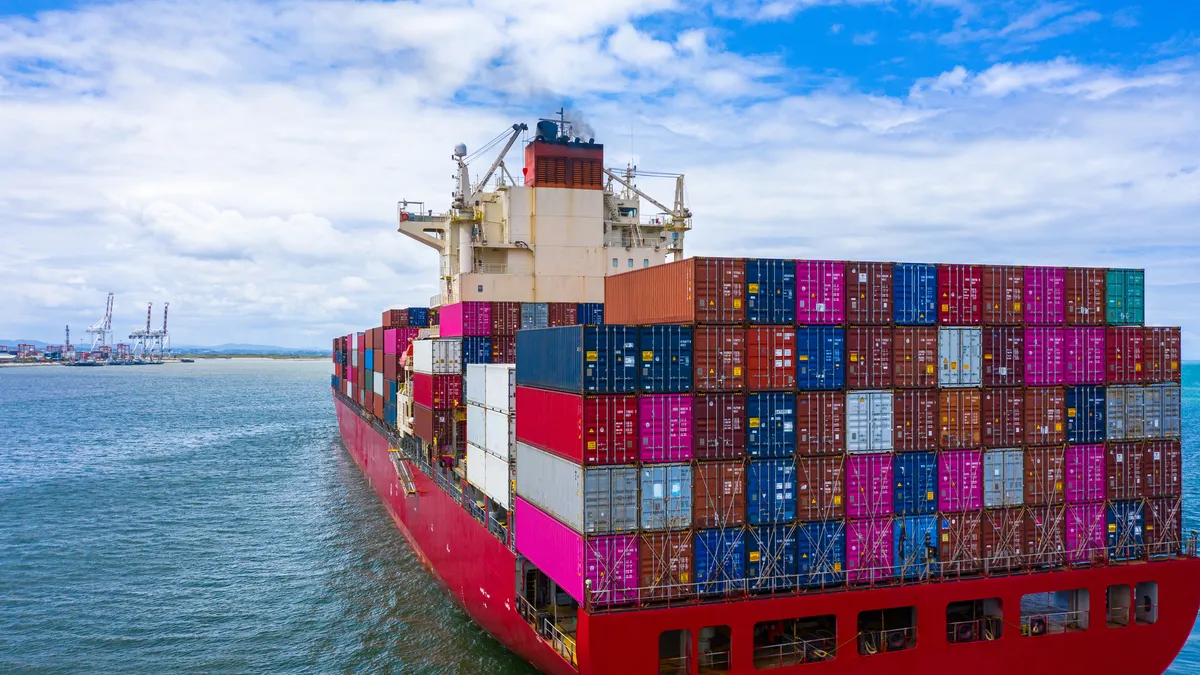Dive Brief:
- Amid ongoing inflation woes, import cargo volume at the nation’s major container ports this month is expected to drop to nearly its lowest level since the start of the pandemic, according to a Global Port Tracker report released by the National Retail Federation and Hackett Associates.
- February imports are forecast to drop to 1.57 million 20-foot units, down 25.6% year over year. It will be the lowest import month since May 2020, when many factories in Asia and U.S. stores closed during the beginning of the COVID-19 pandemic.
- “With the U.S. economy slowing and consumers worried by rising interest rates and still-high inflation, retailers are importing less merchandise,” Jonathan Gold, NRF vice president for supply chain and customs policy, said in a statement.
Dive Insight:
Ben Hackett, founder of Hackett Associates, attributed the drop in cargo volumes to the confusing economic situation in the U.S. While American workers’ wages are rising and employers are hiring for more jobs, high inflation and interest rates could cause a recession, Hackett said.
“In some ways, 2023 is reminiscent of 2020, when the world’s economies shut down because of the pandemic and no one had a clue where we were headed,” Hackett said in a statement.
After a slight 0.1% uptick in November, the Consumer Price Index dipped by 0.1% in December compared to the previous month, offering retailers a sign that price growth is slowing. Still, two-thirds of retail executives responding to a Deloitte survey released in January said they anticipate consumers shopping based on price instead of retailer loyalty.
“February is traditionally a slow month, but these are the lowest numbers we’ve seen in almost three years. Retailers are being cautious as they wait to see how the economy responds to efforts to bring inflation under control,” Gold said.
The February decline follows previous drops in imports leading up to the holiday season. Imports dropped in October, November and December as retailers managed an influx of inventory and were well prepared to meet holiday demand.











